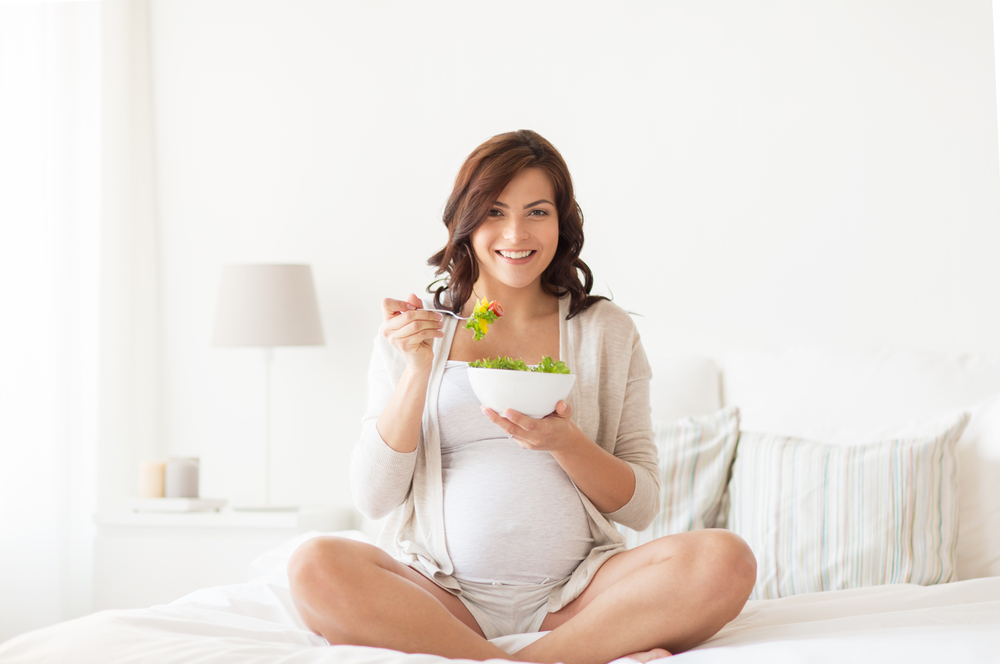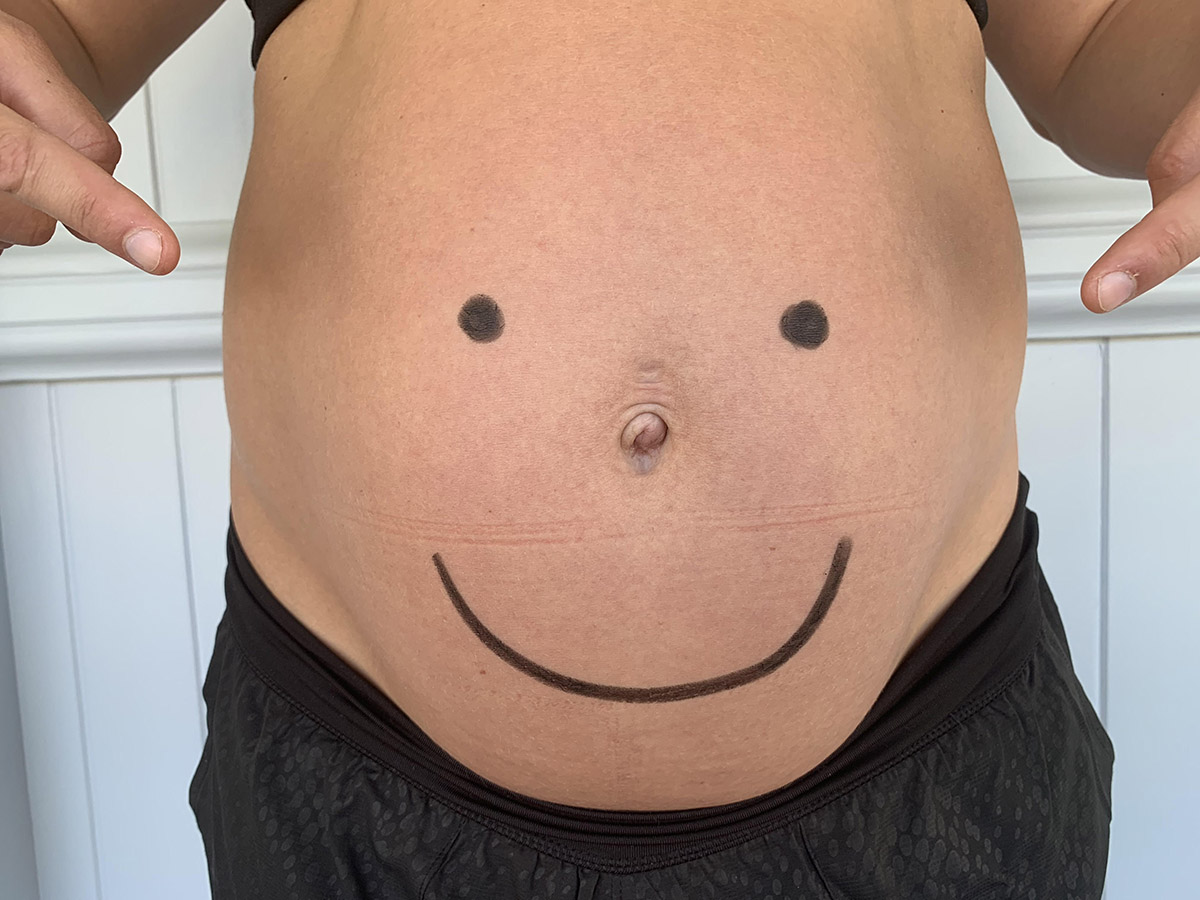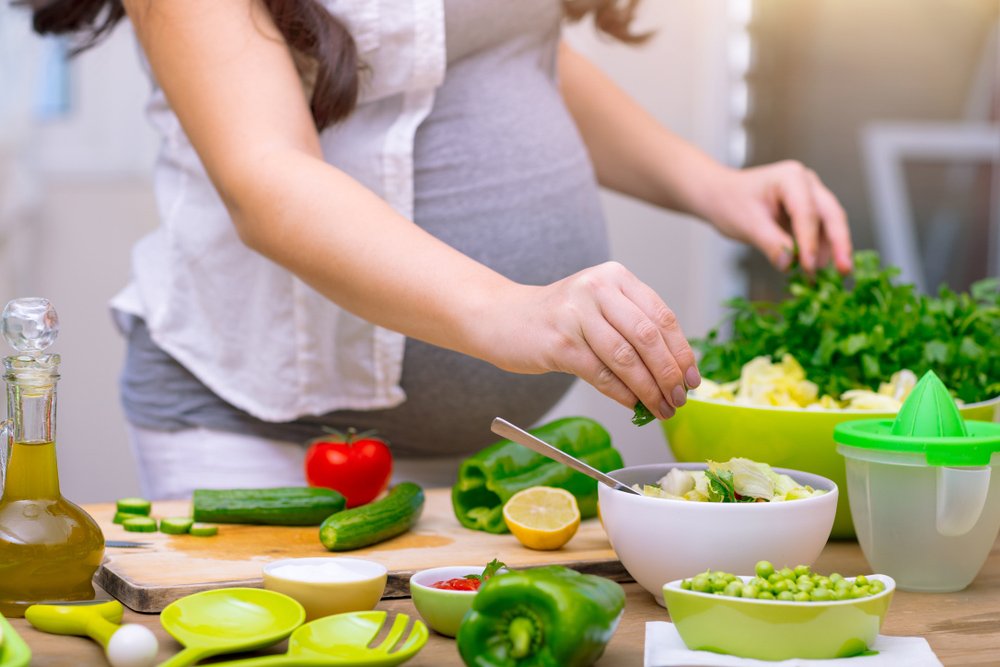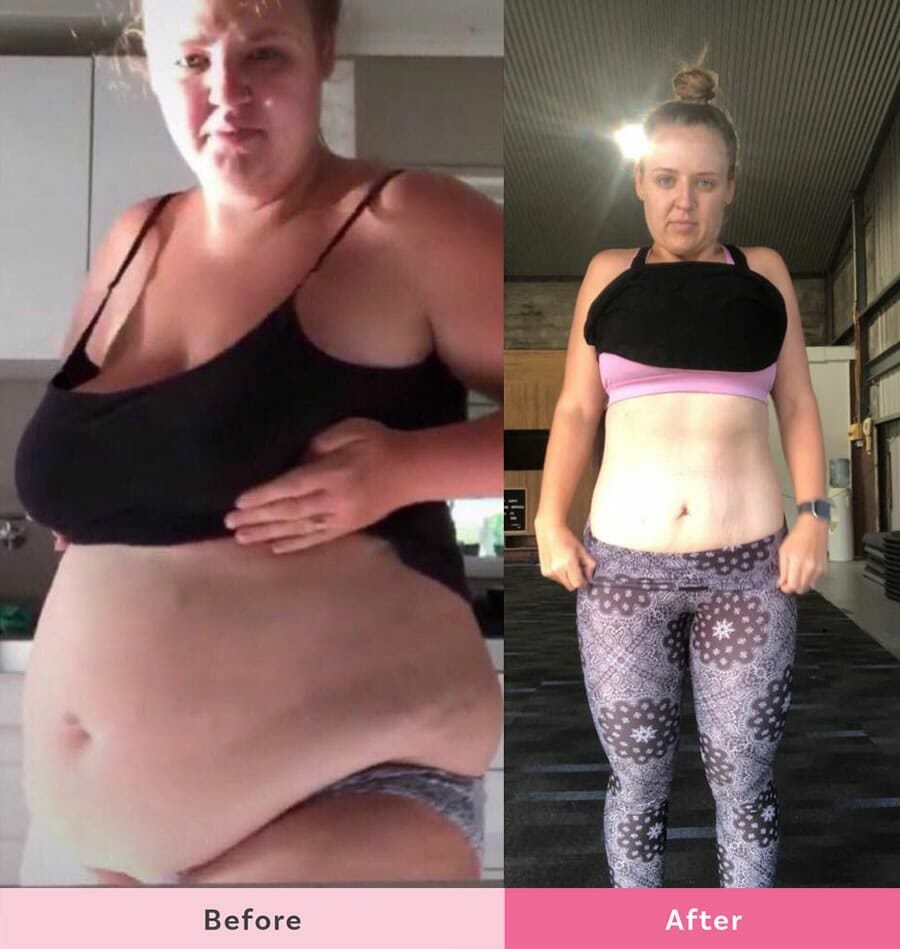Power pregnancy food: 25 delicious recipes full of folate
Folate is one of the most important nutrients in pregnancy, but it can be tricky to know if you’ve eaten enough or not. We’ve got you covered with 25 recipes you can add to your pregnancy food collection!
Pregnant or planning to be soon? One of the FIRST things you need to consider is your diet and nutrients, especially folic acid. Start thinking about pregnancy food now to support a healthy pregnancy and baby.
In this article we’ll cover the importance of folate and folic acid, what it does, how much you need, what ingredients are high in folate, and our top recipes packed full of folate to help you get enough of it in your diet.
Jump ahead to read more:
- What’s the difference between folic acid and folate?
- Why is folate so important for pregnancy?
- How much folate do pregnant women need?
- What ingredients contain lots of folate?
- 25 recipes packed with folate for pregnancy
- Make any food pregnancy-friendly with extra folate
- Get more mum-friendly recipes & pregnancy food ideas
 

What’s the difference between folic acid and folate?
Don’t worry, you’re not the only one if you’ve got these mixed up in the past. So, what’s the difference between folate and folic acid?
Folate and folic acid are both different types of vitamin B9, but both affect your health differently. Folate is the naturally occurring form of Vit B9 (usually found in leafy greens, legumes, eggs, seeds, etc.). Folic acid is the synthetic/manmade form of Vit B9 (also called pteroylmonoglutamic acid) and you’ll find it in supplements (especially women’s and pregnancy multivitamins) and certain processed foods like bread, breakfast cereal, and flour.
Most of the time, it’s recommended to get your Vitamin B9 from whole foods so you get it in the naturally occurring form. But pregnant women are usually advised to take supplements as well to make sure they get enough folate in their diet.
Why is folate so important for pregnancy?
Getting enough folate should be one of your top priorities as a pregnant woman, especially in the first trimester. This is because simply having adequate folate intake can prevent most cases of neural tube defects in babies.
The neural tube is extremely important. In a teeny tiny baby, the neural tube is what becomes their brain, spinal cord, and surrounding bones. This tube is formed and fully closed within the first 4-6 weeks of pregnancy, which is before many women even know they’re pregnant.
Neural tube defects include anything that goes wrong during the neural tube’s development, which can result in spina bifida, anencephaly, and other issues – leading to serious nerve damage, disability, and worse. Including more folate in your diet (and through supplements) is one of the best things you can do to protect your baby from birth defects – and it’s really easy to do!

How much folate do pregnant women need?
Experts recommend you consume at least 600 micrograms of folate per day, especially from just before you fall pregnant. So as soon as you start trying for a baby or if you think there’s a chance you might fall pregnant, start incorporating pregnancy foods with plenty of folate!* Then continue this throughout the first trimester, during that critical period of development. Because it’s really hard to measure the amount of folate in your foods, it’s generally recommended that you also take a daily supplement with 500 micrograms of folic acid. Most pregnancy and pre-conception multivitamins come with folate included, but it’s important to check the label to make sure.
*The reason you need to start taking supplements before you’re actually pregnant is because birth defects (which you can prevent with folate) can occur right away during pregnancy, and most women won’t know they’re pregnant until around 4 weeks along when their period is late, and/or they take a pregnancy test. And since a lot of pregnancies are unplanned (about half), it’s really something that every sexually active woman of childbearing age should be aware of. Folate is important!
What ingredients contain lots of folate?
Ready to start incorporating more folate into your diet? Here are some power pregnancy foods packed with folate (either the naturally occurring kind or folic acid):
- Legumes – Beans, beans the magical fruit… kidney beans, peas, and lentils are all good sources of folate
- Eggs – Along with folate, get the added benefits of protein and other nutrients
- Leafy greens – Kale, rocket, and spinach are high in fibre and vitamins, too
- Dark green veggies – Brussel sprouts and broccoli are excellent pregnancy foods because they’re full of essential vitamins and nutrients, including folate
- Nuts and seeds – These tiny foods pack a punch when it comes to folate, fibre, and other nutrients
- Citrus – Enjoy more oranges, lemons, limes, mandarins, and grapefruits to up your folate, vitamin C, fibre, and give your immune system a boost
- Bananas – More famous for their high potassium content, bananas are also a good source of folate and a great pregnancy food for getting through morning sickness
- Avocado – These delicious foods are highly nutritious with good fats, vitamins, and folate
- Fortified grains and cereals – Folic acid is added to many cereals, breads, and pastas to help ensure more people get enough folate into their diet

25 recipes packed with folate for pregnancy
We’ve put together a list of 25 of our favourite folate-packed recipes. These recipes are highly nutritious, with ingredients like leafy greens, legumes, eggs, citrus, grains, and more. So, if you’re planning your meals and looking for healthy pregnancy food, add these to your list!
- Foolproof spinach and feta frittata
- Spiced chickpea nourish bowl
- Healthy vegetarian pumpkin and chickpea burgers
- Chicken and ham Caesar wrap
- Veggie-stuffed Mexican sweet potato
- Pumpkin and lentil curry
- Baked eggs with chorizo and beans
- Super greens splice smoothie
- Citrus wake me up smoothie
- Bacon, egg and kale salad
- Crispy potato hash with smashed avo and poached eggs
- Orange juice Bircher with apple, cinnamon and walnuts
- Chocolate cashew cups
- Festive cranberry Waldorf salad
- Vegan-friendly roast potato and green bean salad with Dijon dressing
- Peanut banana oat cookies
- Peanut butter and banana breakfast bars
- Banana and strawberry bread
- Decadent double choc banana muffins
- Chicken and avocado macro bowl
- Poached chicken, avocado and blood orange salad
- Chicken, coriander, avocado and lime pasta
- Summer rocket, avocado and almond salad
- Pumpkin, shallot, feta and spinach quiche
- Feta, leek and spinach mini quiche
Make any food pregnancy-friendly with extra folate
Here at The Healthy Mummy, we love doing ingredient swaps to make our favourite recipes healthier and more nutritious. When it comes to pregnancy food, there are so many opportunities to boost your folate content by changing just a few ingredients. Here’s how you might tweak your healthy meal plan or recipes to incorporate more folate:
- Add a side salad to your meal with leafy greens and freshly chopped citrus
- Add a handful of nuts to your stirfry
- Do cauliflower rice or quinoa instead of regular white or brown rice
- Spread creamy avocado on your sandwich instead of cream cheese
- Go meat-free occasionally and substitute with beans and lentils
- Add a poached or fried egg
- Swap some of the sugar in your cake/muffin for mash banana
- Enjoy a fresh healthy smoothie with citrus, banana, and/or nuts
Are you currently pregnant? Then you should try our yummy Healthy Mummy Pregnancy smoothie.
The Healthy Mummy Pregnancy Smoothie is designed to complement, not replace, your prenatal vitamin intake. Our nutritionists ensured that the vitamins and minerals in the smoothie are at a low level so there is no risk of doubling up on any pregnancy vitamins.
It is ideal as a high-protein, high-calcium snack in pregnancy. You can download the Pregnancy Smoothie Label here.
To purchase yours, click here.
*Please note that The Healthy Mummy Pregnancy range promotes healthy weight gain in pregnancy*









